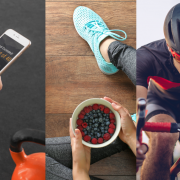Athletes like Pauline Ferrand-Prévot, Simone Biles and others taking time off due to mental and physical stress & burnout
Pauline Ferrand-Prévot, 6-time cycling world champion, has ended her 2021 season early.
Less than a month after retaining her European title in cross-country mountain biking, the Frenchwoman shared an emotive post on social media as she announced the end to her racing for the year.
“I feel deeply tired, mentally and physically. I don’t have energy and my body is clearly not recovering from training. I decided to stop my season before I make too much damage to my body.
“I’m happy with my decision because I know it’s the best one. I will come back stronger next year.”
After leaving top-tier road squad Canyon-SRAM at the end of 2020, the 29-year-old had produced some strong results in the year to date.
Starting the season with mountain bike team Absolute Absalon-BMC, Ferrand-Prévot secured bronze in a sprint finish at the inaugural Short Track Cross-country World Championships, and sits third in the World Cup standings for cross-country even after her withdrawal from racing at the fifth round in Lenzerheide, Switzerland.
The versatile cyclist, who has previously won world titles in three different disciplines, joins a host of athletes recently in opening up about struggles surrounding their performance at the top level, with mental and physical fatigue often leading to further issues.
Such was the case at the Tokyo Olympics, when strongly-favoured American Simone Biles felt unable to compete in the team final of the gymnastics, with mental health her primary concern. A quadruple gold medallist the Olympics prior, the Texas-based athlete only returned for the final of the balance beam, winning bronze to equal the record for medals won by a US gymnast.
With an extended five year Olympic cycle in the lead-up to the Games, Biles was the poster child of the event for many at home. Expected by many to equal or improve on her medal haul from the Rio Games, the Ohio-born gymnast was philosophical after her withdrawal.
“We have to protect our minds and our bodies and not just go out and do what the world wants us to do… We’re not just athletes. We’re people at the end of the day and sometimes you just have to step back.”
Despite the mental effects of sport being at the forefront of debate for the first time in recent years, such topics have been present for a significant period of time.
6-time snooker World Champion Ronnie O’Sullivan, whose experience of burnout and stress has been well-documented, has abandoned matches and skipped tournaments due to the demands sport has placed on him.
More recently, four-time Grand Slam winner Naomi Osaka withdrew from the 2021 French Open after winning her first round match, refusing to participate in press conferences throughout due to the strain on her mental health.
Despite taking a break from competition and skipping the Wimbledon Championships, the 23-year-old announced a hiatus from tennis after an early loss at the US Open, stating that, “[W]hen I win, I don’t feel happy. I feel more like a relief. And then when I lose, I feel very sad.”
No matter the level of competition, participating in sport creates fatigue, both mental and physical, with training placing significant demands on the body, and stressors from all areas adding to the cognitive demands involved.
We created Rewire to help athletes that are looking to combat mental and physical fatigue in and out of competition.
Whether it is assessing readiness for competition or training, or training the brain to cope better with mental fatigue, the Rewire app has you covered.
Start free with Rewire today to maximise your potential, and improve your resilience to mental fatigue.









